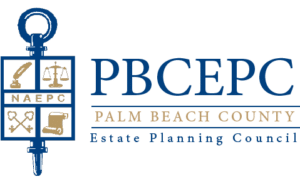
Titling Assets with the Intent of Your Estate Plan
You have put time and effort into completing your estate planning documents and the ink is now dry. You breathe a sigh of relief, because, let’s face it, planning for your demise is not fun. Unfortunately, there is more to do before you can check this task off your list. Whether your estate plan consists of a stand-alone testamentary Will or a pour-over Will to a Revocable Living Trust, it is important to review your assets and make sure that they are aligned with your new estate plan so that all of your hard work is not potentially negated. Reviewing the ownership of your assets in connection with your new estate plan and coordinating everything so that the expected results will be achieved at your death will likely take the combined efforts of all of your team: your estate planning attorney, financial advisor, insurance advisor, accountant, human resources department of your employer (or former employer if you are retired), and you. This article will discuss the steps that should be taken for some commonly held assets after your new estate planning documents are signed. We will explore retitling bank and brokerage accounts and changing beneficiary designations on retirement accounts and life insurance policies.
Most people do not know that there is a Florida constitutional restriction on descent and devise of Florida homestead real property if you are married and/or have minor children. For that reason, the deed to your Florida residence should be reviewed to ensure that the manner in which you hold title to your Florida property will (i) achieve the results that you wish upon your demise under Florida law and (ii) afford you all of the homestead protections available under Florida law.
It will be necessary to review your retirement assets and make sure that the custodian (i) has a primary and a contingent beneficiary designation on record and (ii) the designations are aligned with your estate plan, ERISA and the SECURE Act. With respect to life insurance policies, it is important to review the (i) ownership of life insurance policies, (ii) the beneficiary of such policies and (iii) the insured on such policies, to determine if they are in line with your estate plan. In some cases, a policy may be owned in a Life Insurance Trust or such a trust may be appropriate for the policy.
Assets that are jointly held with rights of survivorship (or as tenants by the entireties) or have payable on death (POD or TOD) designations will pass outside of any estate planning documents you have established to the surviving joint owner or named beneficiary. Unless this was intended, which should be documented, the use of these types of designations, without consultation with your team of advisors, often leads to surprises after your demise and cannot always be corrected with postmortem planning. In addition, it can leave your estate without sufficient assets with which to pay the expenses of your estate administration.
If your estate plan consists of a pour-over Will/Revocable Living Trust plan, and your attorney has advised you to retitle your assets into your Revocable Living Trust, it is important that you review all of your assets carefully and retitle them. In certain circumstances your attorney may recommend retitling your tangible personal property into your Revocable Living Trust. This is done by an “assignment,” which your attorney can provide. Other attorneys may prefer that your tangible personal property remain in your sole name, or be held jointly with your spouse if you are married.
Bank and brokerage accounts are usually the easiest to retitle and that may be done by contacting your advisor. If any stocks are held in certificate form or with a transfer agent, this would be a good time to place such assets into your brokerage account (and have one less piece of paper at tax time). Limited liability company and limited partnership interests should be assigned to your Revocable Living Trust (this may require the consent of the other members/partners) while interests in closely held corporations should be transferred to your Revocable Living Trust via stock certificates and recorded on the books of the company.
Oil, gas and other mineral interests have different requirements based on the type of rights involved and the location of the underlying rights. Some of these assets are deeded and some are intangible personal property. For this reason, it is best to consult the producer and, if the producer cannot assist with the proper documentation, then confer with local attorney, regarding how to retitle them.
The importance of proper titling of your assets does not stop with the initial flurry of activity. Attention must be paid to the title to each new asset that you purchase or otherwise obtain to ensure that it conforms with your estate plan.
Wiggin and Dana Partner Rani Newman Mathura focuses her practice on estate planning, estate and trust administration, and charitable planning. Her practice includes fiduciary and trustee representation, business succession planning and residential real estate.
